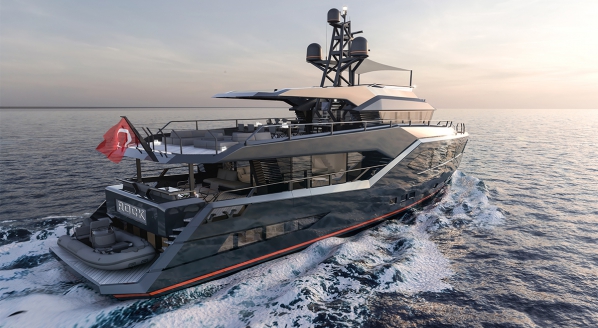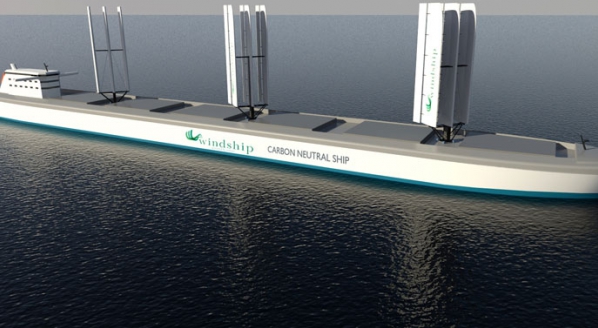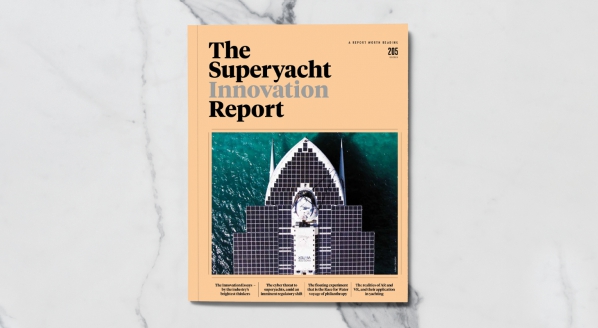Innovation and changing perspectives
‘How do we give our clients a different lens to look through?’, asks Lateral Naval Architects MD James Roy…
I am often asked the question as to what technical ‘game-changing’ innovations are around the corner in the marine industry, be that in the superyacht, defence or commercial marine sectors. These questions tend to arise at the start of new projects, when the foundations of design intent are being laid, and how engineering will serve to deliver them.
We operate in a mature industry, where significant innovations have happened over a long period of time. Many have in fact come, gone and come back again. Some many times over, and with every cycle, are often even held up as ‘new’ innovations. It would be slightly arrogant to suppose that further significant advancements are not there to be innovated; however, the reality is that innovation is (in the main) incremental and progressive in nature.
I would suggest that asking such a question is to only see part of the answer. We live in a period where change is accelerating, both in a technical and social context. I for one enjoy, in my world of engineering, this pace of change; I enjoy that capitalism drives the search for a competitive edge, which in turn drives the advancement of knowledge and progress. There is a theory called the Technology Singularity, which suggests that eventually the pace of change will be so advanced that it will happen instantaneously.
Whether or not you believe in that being possible, we all experience that change (driven by innovation) finds its way to market at an increasingly faster rate. Consumer products that would typically have had several product generations on the same fundamental platform are now achieving market penetration at an accelerated rate, in turn driving a faster market response and a rapid need for the ‘next generation’ product.
However, there is a problem with comparing superyachts with the generalities of consumer products. We are building artisanal products (on a grand scale perhaps), mostly all unique prototypes, in a very niche market, with multiyear delivery timescales. Our throughput is tiny by comparison. The result of this is that progress will continue to be incremental. We should embrace that, because it will drive investment in a long-term view.
But is our industry responding to change in the right way? We seem to be selling pretty much the same product we were 10-plus years ago. Many are significantly better, in design, engineering, materials and quality terms, but in essence it’s the same. Are we limited by the incremental pace of innovation in our industry?
The seemingly frustrating technological limitations of the present should force us to reflect on our actual needs, and whether our perceived needs are based on real facts or ingrained paradigms.
The seemingly frustrating technological limitations of the present should force us to reflect on our actual needs, and whether our perceived needs are based on real facts or ingrained paradigms. Change the question and perhaps we can answer it well with the technology we have today, and better serve the real needs of our customers, while advancing science and engineering and driving progress.
To give this some context, let’s look at some ingrained paradigms. Yachts have developed over many centuries; today, we have some broad labels we apply, principally motoryacht and sailing yacht. Our industry has certain narratives around each type of vessel; the customers who might buy them and what they might enjoy about them. Alongside this, we point to certain specifics and hold them up as the future, such as hydrogen and other alternative fuels for example.
Imagine now a world with no ingrained paradigms. A yacht is a yacht, if you want carbon neutral propulsion, then that technology exists in the wind. Go apply it. Don’t misread me, I am not promoting sailing yachts (although that is a passion), I am promoting adjusting our perspective. Perhaps the next ‘game-changer’ lies not in what answer we are going to apply to our existing question; the game-changer may lie in looking at the whole question from a different perspective.
The challenge here is making it compelling in the market, because it is unlikely to sit well with the majority who wear the spectacles of existing beliefs and perceptions. Taking this example, why can’t we make sail a compelling proposition to those who see a focus on zero emissions? The answer is not to sell them a sailing yacht. I’m not sure what the answer is, but it will lie in act of innovating.
Of course, this is a fairly ‘fluffy cloud’ example. In the real world our clients do have ingrained paradigms. They know what they want (largely) and while wanting to be unique they don’t want to be the wildcard. But it serves to highlight that not all innovation lies in new answers. It equally lies in new questions as well.
Profile links
NEW: Sign up for SuperyachtNewsweek!
Get the latest weekly news, in-depth reports, intelligence, and strategic insights, delivered directly from The Superyacht Group's editors and market analysts.
Stay at the forefront of the superyacht industry with SuperyachtNewsweek
Click here to become part of The Superyacht Group community, and join us in our mission to make this industry accessible to all, and prosperous for the long-term. We are offering access to the superyacht industry’s most comprehensive and longstanding archive of business-critical information, as well as a comprehensive, real-time superyacht fleet database, for just £10 per month, because we are One Industry with One Mission. Sign up here.
Related news

Vripack expands Rock series
Building on the success of its 24m explorer, Vripack's Rock series now includes a 33m and 42m model
Design

Wind-assisted propulsion systems
Martin Richter, Ship Type Expert Yachts at DNV GL, highlights the opportunity that an infinite resource presents
Design

A new reality
Has the new reality we are living in changed the superyacht industry’s attitude towards virtual reality?
Technology

Creating a sustainable future for superyachts
Daniel Kerkhof, director of Crestron Marine, explores the evolution of sustainability and control
Technology

The Superyacht Innovation Report
There has never been a better time, or a greater need, to embrace the future
Technology

‘Knowledge is the fuel of innovation’
Lateral Naval Architects on its involvement with Oceanco NXT and building the next generation of yachts
Design
Related news
Vripack expands Rock series
4 years ago
Wind-assisted propulsion systems
4 years ago
A new reality
4 years ago
Creating a sustainable future for superyachts
4 years ago
The Superyacht Innovation Report
4 years ago
‘Knowledge is the fuel of innovation’
4 years ago
NEW: Sign up for
SuperyachtNewsweek!
Get the latest weekly news, in-depth reports, intelligence, and strategic insights, delivered directly from The Superyacht Group's editors and market analysts.
Stay at the forefront of the superyacht industry with SuperyachtNewsweek




